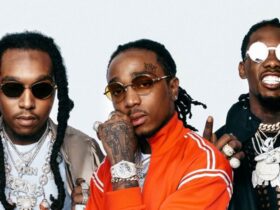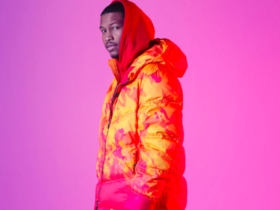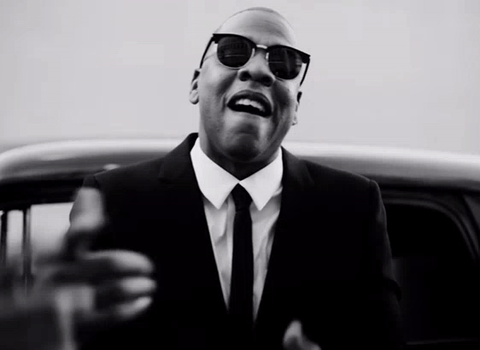Black America was robbed of its history, stripped of its identity, and blocked from its own growth. From the fight for civil rights to the more recent fight for ownership and equity, we’ve scratched and clawed our way into becoming an institution.
That journey is decorated with larger-than-life leaders who showed us how to empower ourselves along the way. Every generation is blessed with forward thinkers who allow us to see our Black selves in the image of power and influence. Lord knows we don’t get that opportunity often.
On the other side of that coin, we’re a group of people who run the constant risk of seeing violence against our heroes, often ending in death or prison. Millennials and Generation Z grew up learning the history of Black leaders we never experienced in their days of glory. All we know is they made our OG’s feel like they deserved more than what America offered them. Furthermore, the opportunities and schools of thought we embrace today are a result of their labor.
In a way, we were lucky for a while. We never had to deal with losing our generation’s forward-thinking public figures to violence—until the death of Nipsey Hussle. The culture hasn’t suffered this type of loss since Pac got his wings. The same bullet that took Nipsey’s life, pierced our hearts. Losing him reintroduced a sense of hopelessness that runs parallel to the idea of success in Black America. If we’re not successful enough, we’ll be stuck at the bottom of the societal totem pole. If we’re too successful, we may lose our lives.
Where does that leave us psychologically when success feels dangerous? What type of damage is done when we fear the act of rebuilding our communities because we could very well die there? Are we ever going to escape the feeling of being in constant survival mode? The stress of it all is enough to make you not want to try, but we don’t even have the luxury of being average. You know the rules, we have to work twice as hard to get half as far.
THE DANGER OF SUCCESS
Being a productive member of society should be met with encouragement. Instead, it’s greeted with hindrance. Earning luxury items and professional opportunities always comes with a cloud of imminent danger. Will the police stop me due to the suspicion that my nice car isn’t mine, find themselves “threatened”, and take my life? Will my neighbors think I’m a trespasser instead of a resident and take “justice” in their own hands along with my life? Must I carefully choose when to stand out at work, so my talent isn’t perceived as a threat to those whose nepotism can’t compete with my skill-set? If I don’t I could be stripped of my income, again threatening my life. Does my life even belong to me, or am I just borrowing my own existence until the system is ready to take it back?
Being Black and successful is as risky as driving on the wrong side of the road because that was never supposed to be our lane. If you’re careful, and your timing is right you could survive. Still, you can almost certainly count on suffering some harm even if you do make it out alive. That’s the mentality we carry with us daily, and we’re so used to it that we’re damn near numb to a systemic attack on our mental health. We live with a very specific cultural anxiety and paranoia, better known as the struggle.
THE BLACK FLIGHT CONDITION
Many of us either came from communities of low-income, or we’re a generation or two removed from growing up under such conditions. Our neighborhoods suffer from the typical ails of any environment lacking resources. If you grow up in poverty, your immediate goal is to survive and escape. If you grow up more privileged, your goal is to avoid ending up impoverished. Who can blame you for wanting the best possible quality of life? The goal of making enough money to get out of the hood is as logical as it is detrimental.
What happens when you leave the hood? Usually, you end up in communities that don’t necessarily look to embrace or protect you. You’re living conditions may be comfortable, but there is a slow detachment from your own identity. What’s worse is your children grow up with that detachment.
The ideal situation is to pour back into our communities and turn them into places where we all can thrive. According to the New York Times, approximately 40% of Black Americans lived in the suburbs as of 2017. Meanwhile, when discussing wealthy Black neighborhoods, the same 10 are listed on platforms like Black Enterprise and The Root, though both lists were published 3 years apart. It lends to the idea that we leave our own communities with haste, and rarely build them into places we’d like to raise our kids. If everyone but us is patient enough to gentrify our communities, we should be patient enough to rebuild them. We’re the only ones that won’t price each other out, and recreate the issue for generations that haven’t even been conceived yet.
Neighborhood Nip tried to do it the right way, and the success of it backfired on him. Hussle Man was murdered in front of everything it took him 10 years to build by someone from the very community he was working to uplift. It reinvigorates that urge to leave our neighborhoods instead of investing in them. How can you convince the young boy or girl who looked up to Nipsey to follow in his footsteps? They just witnessed the cold reality that it’s not safe to rebuild the places that birthed them. I don’t think there’s a bigger pill to swallow than the medication institutionalized poverty serves, numbing us to the possibility of buying back the block or having complete control of our safety.
PSYCHOLOGICAL IMPLICATIONS
Black America regularly loses its generational leaders to murder and other acts of violence. According to the Jefferson Journal of Psychology , when a person (especially children) witnesses murder or other acts of violence, they may experience post-traumatic stress. Exposure to repetitive violence leads to feelings of helplessness, frustration, and rage.
We love our heroes like they’re family. We don’t have to witness acts of violence against them first hand to feel the helplessness, frustration, and rage that comes with learning of their victimhood. In fact, you can develop PTSD just by learning of traumatic experiences of someone close to you. That’s why we mourn together for days physically and digitally, frustrated at having to use another RIP hashtag.
Every time a generation loses a leader, it adds another layer of unspoken hesitation to be a fearless agent of change for our culture. People pass that hesitation along to their children, in the form of warnings to not call too much attention to themselves. No parent wants their child to be a martyr, no matter their potential to benefit the hearts and minds of others. That hesitation to be fearless graduated from thinking it might be safer not to protest for civil rights and inclusion.
Now we figure it’s best to leave the community instead of staying to improve it. Perhaps it’s best to stay quiet, collect that check, and stay out of the way so the immediate family is surely taken care of. Better that than sacrifice it all trying to fight the good fight, right? Of course not, but one can’t blame those who take on that mentality. Avoidance is a symptom of PTSD. Thankfully, many of us choose not to avoid what must be done to move us forward.
“When one considers the years of potential life lost from homicide, the cost of days lost from work, school and other meaningful activities, the cost of the disabilities resulting from violence, and the devastating emotional impact of violence-the true damage to society can be appreciated” – American Psychiatric Association
CONSTANT SURVIVAL MODE
We’re targets whether we are doing nothing with our lives, or being extraordinary. I saw the best version of myself in Nipsey Hussle. A king honored by his peers, cherished by his family, and respected by his contemporaries. All of those qualities, and it still ended in bodily harm. Death at the hands of someone who was a victim of an impoverished mentality he was born into. Even if the killer knew he was wrong, he didn’t care because he didn’t value his own life, much less someone else’s.
As much as I want justice to be served, I’m also aware that the killer didn’t know any better. America showed him from day one that he’d never have shit but his pride. When your pride is literally all you have to justify being alive, you don’t care who or what you destroy to maintain it. Nipsey Hussle’s death is a result of the institutionalized poverty he was working to reverse in his own backyard.
All things considered, to be Black in America is to live in constant survival mode. Your head is on a never-ending swivel because you can never be quite sure where your enemy is coming from. We were reminded of that when we lost Nipsey, just as we were embracing our power as a culture. We mourn him not only because of what he and his music represented to us, but because his death was a sobering reality check.
The New Black Renaissance is still upon us, but we’re not out of the woods yet. We won’t be until it’s not a threat to be successful or a risk to remain in our own communities. That’s an existence we’re tasked to establish for the grandchildren we’ll never meet. The same way our elders fought for the civil liberties we see today, knowing they wouldn’t enjoy it in their own lifetimes. Just as we celebrate wins together, it’s important to handle our losses like that of Nipsey together as well.
Our generation has work to do, and that work demands camaraderie that can only be shaped through holding each other when it hurts to stand. That camaraderie can take many shapes, from posting Nipsey’s lyrics, to making NBA history in his name. I know we’re hurting, and I know we’re tired of feeling hopeless, but we have to return to battle even if our wounds are fresh for the sake of our forward progression. Regardless of what you’re into, regardless of what you’ve been through. I feel like I’ve got to tell you, you’ve got something to contribute.
The marathon continues.
*Original article by Dev T. Smith via Cassius.com





Recent Comments